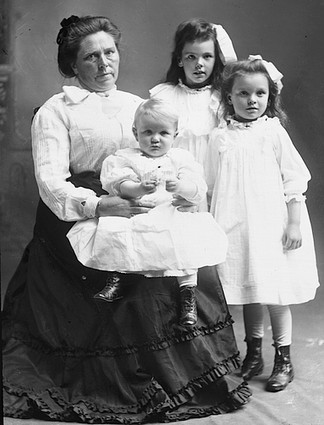Serial killers and other evil actions are generally attributed to men, but these women certainly proved that evil deeds are not limited to just one sex. The brutality and horror in the hearts of these women is unbelievably cruel. Some of these women make Hannibal Lecture look civilized!
 This infamous "cocaine godmother," who was already kidnapping and murdering children at age 11, ran the cocaine trade with murderous force in New York and Miami before being shot in the head in 2012. HBO will release Cocaine Godmother in 2018.
This infamous "cocaine godmother," who was already kidnapping and murdering children at age 11, ran the cocaine trade with murderous force in New York and Miami before being shot in the head in 2012. HBO will release Cocaine Godmother in 2018.
16. Enriqueta Marti
This cruel woman preyed on homeless children and would put them into prostitution or murder them and use their remains for ointments that she claimed cured tuberculosis. She was eventually arrested and hung by her prison mates before trial.
15. Aileen Wuornos
Having a difficult childhood, Aileen grew up hating all men and became a serial killer. She stole cars, stuck up convenience stores and killed a lot of different men before she was arrested and killed in 2002. A movie titled "Monster" demonstrates her life.
14. Wu Zetian
This evil Chinese empress put countless people to death for threatening her rule. She even put her own infant daughter to death as well as other family members.
13. Queen Mary I
This Catholic queen murdered all Protestants in England and was nicknamed Bloody Mary. Every Protestant was forced to flee England in order to survive until Queen Mary died in 1558.
12. Griselda Blanco
11. Belle Gunness
She killed her three children and husband, used the insurance money to buy a home, remarried and killed his infant daughter and him as well. She then took out an ad as an eligible widow with property. Each prospective buyer would be killed and robbed. She left the country after 40 separate murders and was never found.
10. Ilse Koch
This Nazi wife tortured and killed many Jewish inmates and made lampshades and other household items out of their skin.
9. Irma Grese
This Nazi woman tortured and killed Jewish women who were more attractive than herself. She believed she would have a career in the movies once Germany won World War II but instead was hanged for her crimes in 1945.
8. Katherine Knight
Knight is known for strangling her husband for falling asleep during sex, slitting a boyfriends dog’s throat right in front of him and most infamously stabbing a man 37 times, decapitating him, hanging his body on a meat hook and attempting to feed his cooked body parts to his children.
7. Elizabeth Bathory
Using her political status as a murder hungry housewife in the 16th century, she was responsible for the torture and murder of over 650 women whom would be lured into her castle in hopes of finding a job. (Despite the evidence against Elizabeth, her family's influence kept her from facing trial. She was imprisoned in December 1610 within Csejte Castle, Upper Hungary, now in Slovakia, where she remained immured in a set of rooms until her death four years later.)
6. Lizzie Borden
Accused of murdering her family with an ax, she was one of the first criminal cases to gain nationwide attention. Acquitted after trial, speculation continues to this day -- as her guilt is still widely assumed.
5. Maria 'Chata' Leon
As the head of The Avenues, Chata ran one of the most dangerous street gangs in the history of Los Angeles. From her fortress home on Drew St, she ran a criminal enterprise based on drugs, murder, and intimidation. Much of the gang's higher leadership was made up of her children.
4. Myra Hindley
Together with her boyfriend, Ian Brady, Hindley was responsible for the rape and murder of five young children between 1962-68. Hindley died in prison in 2002.
3. Dorothea Binz
As the SS supervisor at the Ravensbruck concentration camp, her dedication to her work was described by her fellow Nazis as "unyielding." Known for patrolling the camp with a whip in one hand and a German Shepard in the other, inmates reportedly fell silent upon her approach. Her reputation of whipping, beating, and even shooting female inmates earned her the position of supervising the torture bunkers at the camp as well as training guards.
2. Biljana Plavšić
As the former president of Republika Srpska, she lead Bosnia-Herzegovina during the Serbian genocides of the 1990s. It was her comments that ethnic cleansing was a "natural thing" and that six million Serbs needed to die, that rallied her republic to perpetrate genocide. After her arrest, she plea bargained with the war crimes tribunal and remained in prison until her release in 2009. She is currently staging a political comeback.
1. Fusako Shigenobu
After a career as a student activist, she volunteered with the PLO before forming the
Japanese Red Army. In her attempts to unite Japan under Communist revolution, she became a full-fledged terrorist. She is responsible for orchestrating the 1974 attack on the French embassy in The Hague, and assisting the 1960 hijacking of TWA flight 840. Until her arrest in 2000, she was the most wanted terrorist on Earth.



